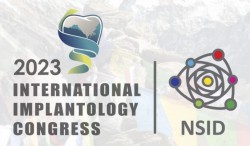Life & Health
Flood victims in Banke are worried about contracting dengue and other infections due to the lack of mosquito nets and poor sanitation in temporary shelters.
Pemba Tamang from Gayatritole of Nepalgunj Sub-Metropolis-20 has been taking shelter at a school after his house was inundated due to floods caused by incessant rainfall for the past several days.
With 40 displaced households taking shelter at the school, space is at a premium – Tamang is sharing a room with 30 other people. Those affected include senior citizens, children and pregnant women.
“There are mosquitoes around the shelter. We are deprived of sleep as we spend the nights repelling the mosquitoes,” Tamang said.
Without mosquito nets and repellents, the flood-displaced people are wary of possible dengue fever infection.
Shova Budha, another displaced said: “There is a mosquito net at home but I could not take it out as saving life was a priority. Now mosquitoes are a big nuisance here.”
Dengue is a viral infection transmitted to humans through the bite of infected mosquitoes. The primary vectors that transmit the disease are Aedes aegypti mosquitoes and, to a lesser extent, Aedes albopictus.
“Some children and senior citizens had caught cold and got fever due to poor condition in the shelter,” said Kaman Singh Dhami, another displaced. Pregnant and lactating women are also deprived of nutritious foods.
Meanwhile, Chief of health section at Nepalgunj Sub-Metropolis, Ram Bahadur Chand, has assured of necessary health care for the flood victims.
The Ministry of Health and Population have registered 33,975 cases of dengue across the country as of October 11 since January. There have been 44 dengue-related deaths over that period.
According to the World Health Organization, there is no specific treatment for dengue. However,
timely detection of cases, identifying any warning signs of severe dengue infection, and appropriate case management are crucial elements of care to prevent patient death and can lower fatality rates of severe infection to below 1per cent.
The UN health body says that early recognition of dengue infection and appropriate clinical management can reduce the severity of disease and mortality among dengue patients.

_11zon1681280198.jpg)




